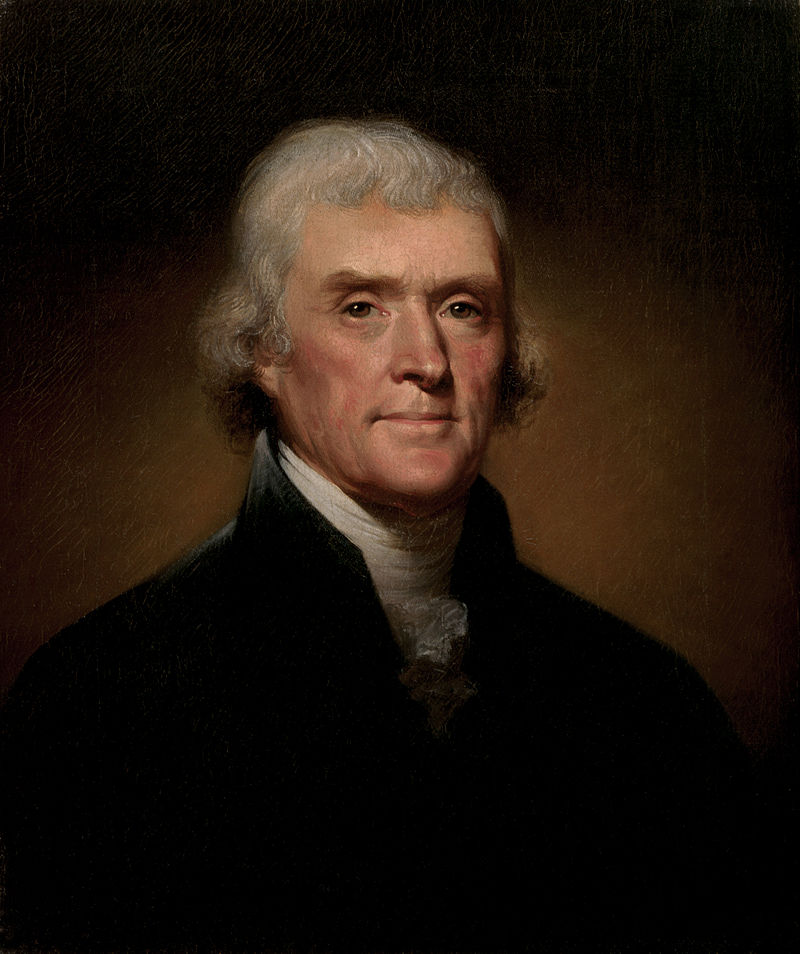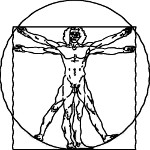



|
Thomas
Jefferson |
|
Thomas Jefferson (1743–1826) was an American Founding Father who was principal author of the Declaration of Independence. He was elected the second Vice President of the United States, and third President. Jefferson was a proponent of democracy, republicanism, and individual rights, which motivated American colonists to break from Great Britain and form a new nation. Jefferson mastered many disciplines which ranged from surveying and mathematics to horticulture and inventions. He was a proven architect in the classical tradition. Jefferson died at his home in Charlottesville, Virginia, on July 4, the fiftieth anniversary of the adoption of the Declaration of Independence. Jefferson's keen interest in religion and philosophy earned him the presidency of the American Philosophical Society. Besides English, Jefferson was well versed in Latin, Greek, French, Italian, and Spanish. Jefferson was sent by the Congress of the Confederation to Europe to negotiate of trade agreements with England, Spain, and France Jefferson founded the University of Virginia. Jefferson married Martha Wayles Skelton whose marriage produced six children. He also had a relationship with his slave Sally Hemings and fathered at least some of her children. Jefferson was skilled at the violin Jefferson was admitted to the Virginia bar. Jefferson distrusted government banks and opposed public borrowing, which he thought created long-term debt, bred monopolies, and invited dangerous speculation as opposed to productive labor. He argued each generation should curtail all debt within 19 years, and not impose a long-term debt on subsequent generations. Jefferson was a farmer, obsessed with new crops, soil conditions, garden designs, and scientific agricultural techniques. His main cash crop was tobacco, but its price was usually low and it was rarely profitable. He tried to achieve self-sufficiency with wheat, vegetables, flax, corn, hogs, sheep, poultry, and cattle to supply his family, slaves, and employees, but he had cash flow problems and was always in debt. Jefferson's reputation declined during the Civil War due to his support of states' rights. In the late 19th century, his legacy was widely criticized; conservatives felt his democratic philosophy had led to that era's populist movement, while Progressives sought a more activist federal government than Jefferson's philosophy allowed. Both groups saw Hamilton as vindicated by history, rather than Jefferson, and President Woodrow Wilson even described Jefferson as "not a great American."
ASPECT
POINTS
Science
2
Law
4
Medicine 0 Business
2
Philosophy
2
Art
2
Travel
2
Sports
2
Collector of books. Beauty
1
Family
1
Fame
1
Civic 1 Career
1
Wealth
1
Leader
1
Humanity
1
TOTAL 24
Universalis
|